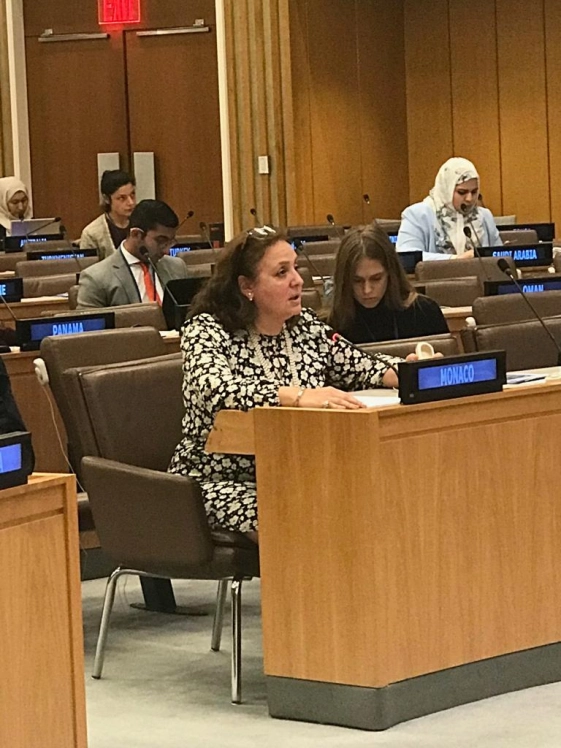Third Committee - 73AGNU - Item 66: Report of the United Nations High Commissioner for Refugees, questions relating to refugees, returnees and displaced persons and humanitarian questions
Published on 1 November 2018 at 20:03 - Modified the 25 July 2023 at 03:03

Statement by H.E. Mrs Isabelle PICCO, Ambassador, Permanent Representative:
As highlighted by the High Commissioner for Refugees in his report: "We are at a turning point where the appropriate response to forced displacement around the world requires a new and comprehensive approach, to ensure that countries and communities are no longer left alone in these situations".
Despite this, in 2017, the global refugee population under UNHCR's mandate reached 19.9 million of the total 68.5 million uprooted people, of whom 25.4 million have fled conflict, or 9 million more than in 2016. This is the largest increase we have seen so far, with 16.2 million people uprooted in 2017.
It is also crucial to mention that more than half are under 18 years old and many are unaccompanied or separated from their families. How not to be staggered in front of 10 million young people left to their own devices?
The Principality of Monaco has long been aware of the refugee situation through its international commitment to the promotion and respect of human rights.
The Convention relating to the Status of Refugees of July 28, 1951 was ratified in 1956 by my Government.
Since then, Monaco has been cooperating with UNHCR and has always shown solidarity with those who have fled their country of origin.
Every year since 1961, Monaco has contributed to the functioning of UNHCR by means of a voluntary contribution.
In addition, a framework agreement was signed in 2010 with UNHCR to cooperate on programs and to intervene in development and emergency projects to assist 60 million crisis-affected people.
I wish to mention that in March 2014, Monaco joined the group of friends of the "Nansen Initiative". This consultative intergovernmental process has resulted in a "protection agenda" for "environmental displaced" and risk management in the country of origin.
As part of the New York Declaration on Refugees and Migrants adopted by the United Nations General Assembly in September 2016, the Monegasque Government has signed two partnership agreements with the Office of the High Commissioner for Refugees providing for a total contribution of € 670,000 over three years for projects in favor of refugees.
In 2016, the Principality was the fifth donor country to the Office of the High Commissioner for Refugees per capita.
In February 2017, the High Commissioner, Mr. Filippo GRANDI, made a work visit to Monaco. This meeting was an opportunity to discuss the urgency of the migration crisis, particularly in the Mediterranean, while reiterating Monaco's support to the institution.
In this context, Monaco has decided to host several families of refugees. They were supported by the social services and benefited from family and medical support. The state bears the full cost of their health and housing. Theirlearning of the French language is ensured in order to enable them to enter professional life while the school-aged children are welcomed in the Principality's establishments.
In addition, on the preventive side, Monaco seeks to strengthen the resilience of countries by strengthening the capacities of the civil protection forces. A total of 1.8 million euros were mobilized to respond to 35 emergencies (in Africa, Asia and the Middle East). Nearly 80,000 refugees benefited from direct and short-term support in the fields of health, food, education and employment.
Let me conclude by recalling the need to adopt a committed and comprehensive approach to the situation of the 19.9 million refugees around the world.
The Principality of Monaco therefore strongly supports the international cooperation framework established by the Global Compact on Refugees, which should enable host countries and communities to receive rapid, sustainable and predictable support.